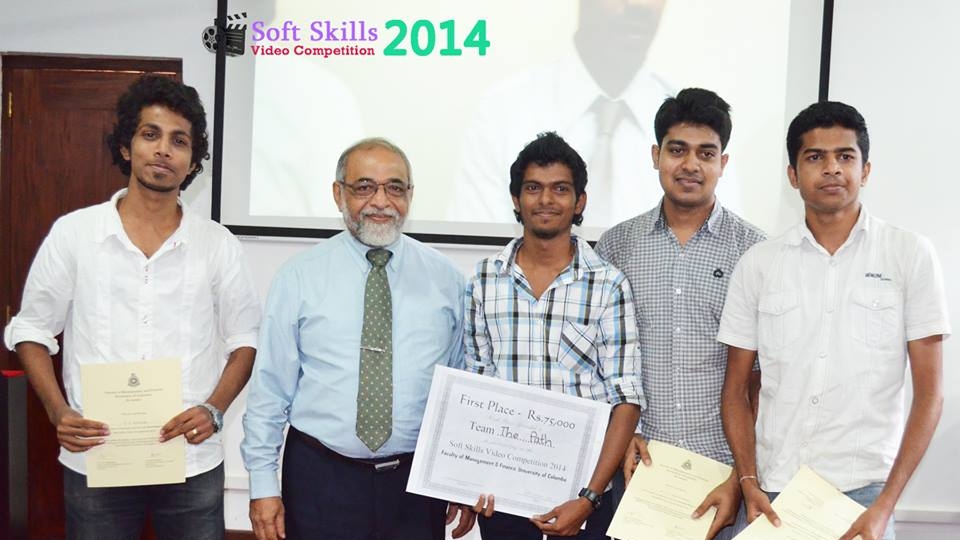Prioritizing Skills
A team of HETC project coordinators identified specific soft skills that needed to be sharpened based on engagement from students and academics. A few faculties have also established ‘soft ‘skills centers’ with facilities for student discussions, mini libraries with reference materials including books and mulitimedia. This is in addition to the many workshops that have been conducted across all universities on an ongoing basis.
Innovative Competition
One innovative activity that were carried out under this project was a video production competition that helped students put their soft skills to the test, in addition to passing examinations.
"We, at the Faculty of Management and Finance, University of Colombo, decided to carry out a creative activity to enhance soft skills of undergraduates through the HETC project by gaining students’ interest while promoting deep and active learning. With this intention, a soft skills video competition opened to all undergraduates of the faculty was conducted. Students were very enthusiastic and actively engaged with the competition. We were thrilled to see the high quality of the videos in terms of ideas, creativity, and technology and the students definitely exceeded our expectations and aims!" said Dr Arosha Adhikaram, the Project Coordinator
Experiential Learning
The competition was conducted by the University’s UDG coordinators. For the competition, 25 teams submitted documentaries that demonstrated their understanding of soft skills required by employers. Three winners were selected.
With the video competition as just one example, the teaching culture in the University system is becoming more engaging and experiential.
“Innovative projects such as these will undoubtedly help make a sea change in the quality of the graduates who enter the job market in the future.” added Dr. Harsha Aturupane, HETC Task Team Leader
The HETC project
The HETC project supports the development of the higher education sector in Sri Lanka, including university education and short-cycle vocational higher education. The project aims to enhance the capacity of the higher education system, institutions, and human resources, to deliver quality higher education services in line with equitable social and economic development needs. To learn more, check out the project documents.


